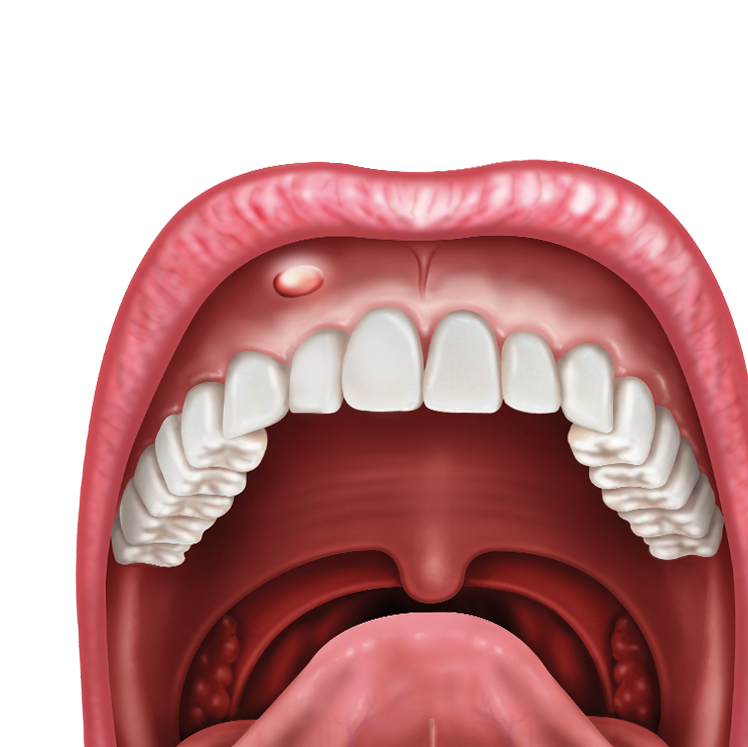
Lesion Removal
An unfamiliar growth in your mouth, or on your face or neck, can not only make you self-conscious but also be alarming.
Dr. Gregory E. Anderson can provide an accurate diagnosis, precise lesion removal, and reconstruction for patients in Garland and Logan, UT.
Why should you consider removing a lesion?

Lesions Are Not Always Harmful But Removal Can Provide Several Benefits
Protect Your Health
Some lesions can be cancerous or precancerous. These growths need to be removed as soon as possible to protect your health. Dr. Anderson will personalize treatment based on the location and type of lesion for the best outcome.
Peace of Mind
While others are not currently harmful, they can be red flags for a precancerous condition or indicate another health issue, such as an endocrine disorder. Receiving treatment, or at the very least undergoing an examination, can provide peace of mind.
Improved Appearance
Some lesions, especially those that have developed on noticeable areas of the face and neck, can take a toll on your self-confidence. Removal and reconstruction can help restore an attractive appearance so you can feel comfortable in your skin.
Why Choose Dr. Anderson? Specialized Training & Techniques
As a board-certified oral and maxillofacial surgeon, Dr. Anderson has undergone specialized training to remove lesions, growths, and cysts from the head and neck, both inside the mouth and on the skin. His capabilities provide him with the unique skill set necessary to preserve both function and the best possible aesthetics. Dr. Anderson is dedicated to providing personalized care to his patients. Throughout his more than 20-year career, he has treated tens of thousands of patients with lesions.

Signs You May Need a Lesion Excised
Abnormal Red or White Areas
Persistent red or white areas in the mouth can indicate oral cancer. However, it may also be a fungal infection or oral herpes. If you notice any change in your mouth or on your lips, you should have it examined.
Newly Developed Lumps
Cysts often appear as lumps or bumps under the skin. They may be hard or soft and can sometimes increase in size over time. If you notice any abnormal swelling or lumps on your head, neck, or face, Dr. Anderson can perform diagnostic tests.
A Sore That Does Not Heal
A sore that appears but does not heal, or does heal but reoccurs, may indicate cancer. Make note of any discolored, raised, or open sores that appear odd and seek treatment if they linger for longer than normal.Early Treatment Provides a Better Outlook
The five-year survival rate for melanoma is 94 percent and this number rises to 99 percent for very early-stage, localized melanoma. Catching a cancerous growth – and having it removed – in the earliest stages before it has spread to other parts of the body can significantly improve your chances of overcoming the condition.
*According to the American Association of Clinical Oncology (ASCO)
What to Expect Diagnosis, Planning & Removal
Diagnosis
Dr. Anderson will first need to evaluate the lesion. He can use advanced technology, including CAT scans and 3-D imaging, to closely examine the area. An accurate diagnosis will allow him to determine the cause and recommend the most effective course of treatment.
Excision
Depending on the location and type of lesion, Dr. Anderson may recommend enucleation (straight-forward removal), curettage (gentle scraping), or careful dissection. Sometimes multiple areas will be treated at once.
Biopsy
A biopsy will then be performed on every lesion that has been removed to determine whether it is cancerous. Depending on the results, further treatment may be needed. Dr. Anderson personally calls each patient to discuss their results.
Reconstruction
Following the removal of a lesion, there may be scarring or an alteration of important structures. Dr. Anderson can perform reconstruction immediately or soon after treatment to restore proper function and a natural appearance.
Factors to Consider That Affect Treatment Cost
Location & Type of Lesion
Whether the lesion is inside the mouth or on the head or neck, as well as its size, will affect the complexity of your surgery. The type of growth will also affect the cost of your procedure.
Insurance
Dr. Anderson strives to keep costs low, and accepts various types of insurance and Medicaid. If you undergo treatment for health reasons, insurance typically covers part or all of the cost. However, if you seek care for purely cosmetic reasons, you will typically need to pay out of pocket.
Financing & Payment Plans
To help prevent the need to postpone treatment due to budgetary concerns, Dr. Anderson accepts CareCredit® financing. He also offers payment plans with a 20 percent deposit. As long as you make your payments each month, there is no collection or service fee.
Schedule a Consultation
If you have noticed a suspicious growth, you should schedule an evaluation with Dr. Anderson as soon as possible. He can accurately diagnose your condition and provide you with expert surgical treatment for prompt removal.
Compassionate Care
"Very welcoming! Dr. Gregory and his team make you feel right at home. State of the Art office. They explain all the options with you and are great at answering your questions."
—Scott, 5-Star Review



